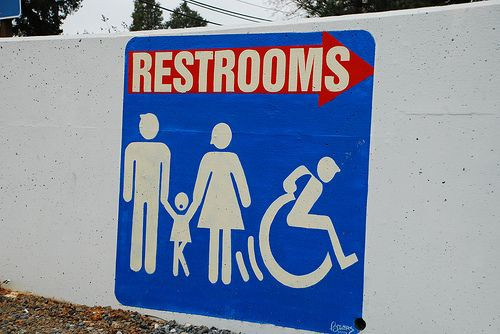Male Vets At Higher Risk Of Incontinence, 3 Times More Likely Than Men Who Have Never Served

Men under the age of 55 who have served in the military were found to have increased risks for urinary incontinence in comparison to men who have never served, according to one study published in The Journal of Urology.
Lead author Dr. Camille Vaughan of the Atlanta VA Medical Center in Decatur, Ga., expressed surprise that the younger cohort of male veterans exhibited greater cases of incontinence. The condition is normally associated with old age, as the muscles in a person’s bladder and urethra lose strength over time. However, doctors involved with the study speculated other factors, such as stress levels and type of combat, could have influenced the results.
"We were surprised the association was only present in the younger age cohort," Vaughan told Reuters Health.
Vaughan and her team analyzed data from 4,700 men over the age of 20. Nearly one-quarter of the men had served in the military. The researchers found that 18 percent of men who had served reported cases of urinary incontinence, while 10 percent of those who hadn’t served, did not.
Those who had experienced incontinence were also more likely to have depression, chronic obstructive pulmonary disease, enlarged prostates, prostate cancer, diabetes, heart disease, and greater propensity to be overweight.
Claims of causality could not be made from this study, only that an association between the two factors exists. Other causal factors, in addition to age, could be playing a role, the researchers noted. Forceful explosions during battle could negatively affect bladder control, Dr. Christopher Amling of the urology department of Oregon Health and Science University in Portland told Reuters Health.
Other factors, including psychological stress and diminishing wartime damage, could explain the bump among those under 55. The researchers controlled for some external factors, such as weight, depression, prostate conditions, and other chronic diseases. Even with controlling, the data ultimately pointed to their conclusions.
Study participants either in the 56-69 group or 70 and above did not show marked differences in the data.
The team’s study comes more than a decade after another study of male vets’ incontinence, that time performed by doctors at the Division of General Internal Medicine, University of Louisville and Louisville Veterans Affairs Medical Center.
In the 2000 study, which saw no difference between age groups, researchers surveyed 840 men about their experience with incontinence over the last year, with ages ranging from 25 to 93 — the mean being 59.8 years old.
The team found that, despite one-third of the men reporting an incontinent episode, only a third of that group notified a medical professional. Three-quarters admitted that they would like treatment, however, leading researchers to suggest the problem is more pervasive than once thought.
“Urinary incontinence is common among male veterans and affects all age groups,” the team concluded. “Although incontinence often has unfavorable consequences on quality of life and although men with incontinence desired treatment, they seldom discussed the problem with medical providers. Systematic screening of men for urinary incontinence may be necessary.”
Both studies conceded that sampling biases limited their results, as men who underreported their condition or were more likely to report a problem because they were already at the doctor's office could be misleading.
Urinary symptoms can be treated with medication, lifestyle changes, or in more severe cases, surgery.
It’s for these reasons, Vaughan said, that "military men should be aware that treatments for urinary symptoms like incontinence are available, and should talk to their healthcare providers if they are experiencing bothersome symptoms."



























